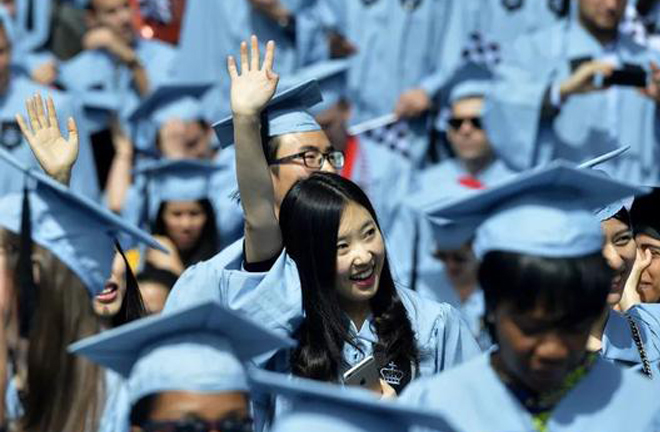Competition for talent attracts global attention

An increasing number of Chinese students are coming to top universities in other countries and more foreign students are coming to China, positioning China in the global talent flow. Photo: XINHUA
On July 13, a symposium on global talent flow and international immigrants was held in Beijing. Scholars and experts carried out in-depth discussions on related issues.
Frank Pieke, director of the Mercator Institute for China Studies, said that, in the course of talent flow, how to help immigrants better integrate into their local social environment is of key importance. Currently, the international community has not given a clear definition of international immigrants’ role and position at the legal level. Facing complex international situations, we need to develop a positive attitude toward the current environment, rationally deal with international talent flow and focus on changes in international relations brought about by the talent flow.
Giuseppe Crocetti, representative of the International Organization for Migration in China, said that talent flow is closely related to economic progress. Research shows that international migrants have made long-term contributions to local employment and economic growth. Meanwhile, global talent flow has had a positive influence on global economic volume. Thus, in the future, we need to conduct more in-depth research on talent flow.
Liu Hong, dean of the School of the Humanities and Social Sciences at Nanyang Technological University, Singapore, shared Singapore’s experience with talent flow. One of the important reasons for Singapore’s success has been the combining of higher education development, economic growth and talent strategy. Among these factors, the strategy of attracting international talent has played a key role. Competition for talent will be a major development trend. For nations or institutes, winning the competition for talent mainly depends on the establishment and implementation of related mechanisms and measures. Nations should not only focus on talent cultivation at home, they should also provide space for developing international talent.
Wang Huiyao, president of the Center for China and Globalization, said that, at present, talent shortages are apparent in some countries and regions. He suggested approaching international governance utilizing social institutions so as to strengthen management of global talent and respond to the competition for talent. For instance, we can establish an international talent association and make it a key platform for international talent to communicate. We can also set up mechanisms of dialogue, coordination and cooperation for international talent and build an information center for data sharing.
Martin Geiger, Associate Professor of Politics of Migration and Mobility at Carleton University said that Chinese immigrants and overseas Chinese students have played a significant role globally. Countries have recognized the importance of China as an exporter of talent. Now an increasing number of foreign students are coming to China.
Pieke added that the government of China has adopted more measures to better integrate into the current of the global talent flow, which is of profound significance to the flow of talent and migrants. He suggested that the government of China encourage diverse approaches to attracting and welcoming talent to stimulate diverse development. The talent flow is crucial to local cultural prosperity and the cultivation of talented individuals.
edited by SU XUAN
